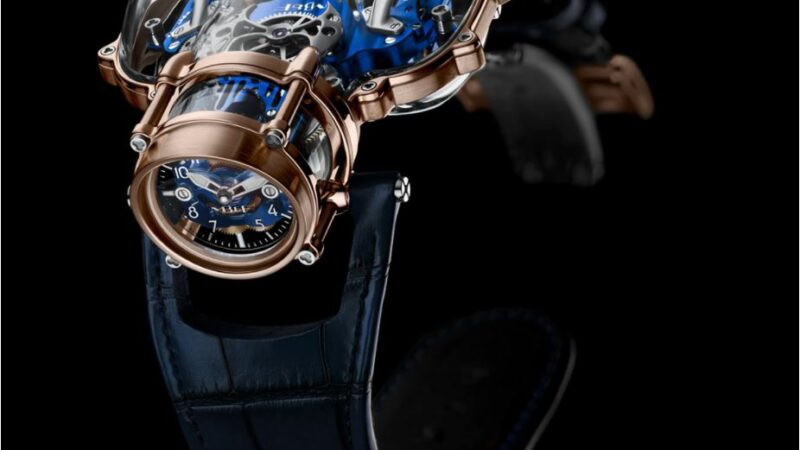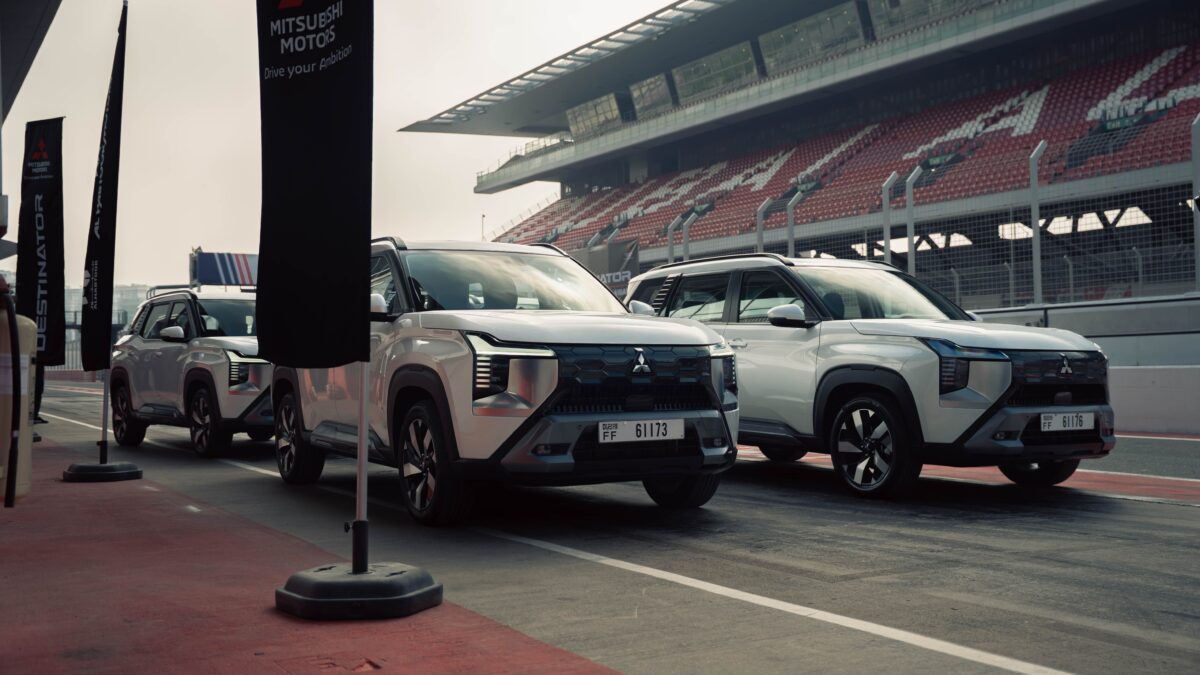
SAPPHIRE VISION’ EDITIONS
First presented in 2018, Horological Machine N°9 – nicknamed HM9 ‘Flow’ – was a tribute to the extraordinary automotive and aeronautic designs of the 1940s and 50s. The result was a case like no other that echoed the epoch’s flowing, aerodynamic lines.
Despite its striking external appearance, MB&F founder Maximilian Büsser described the engine inside HM9 as “the most beautiful movement we’ve created to date”. What other logical step was there to take, if not to encase the HM9 engine in a transparent sapphire crystal shell?
Presenting Horological Machine N°9 ‘Sapphire Vision’ – aka HM9-SV.
An outer hull of sapphire crystal and precious metal, curved and bubbled and precisely fitted together in three parts, is sealed with a proprietary combination of patented three-dimensional gasket and high-tech compound bonding process. Two fully independent cantilevered balances channel data into a differential that turns two heartbeats into one coherent time-pulse. Ultra-precise conical gears efficiently turn the engine’s energy and information current through a 90° angle to feed the time display on a sapphire crystal dial, marked with Super-LumiNova.
On the reverse, co-axial beneath each of the balances are propellers: twin turbines that spin freely as an element of pure visual interest, waiting for someone to begin a new type of exploration. Two years after the initial HM9 Flow ‘Air’ and ‘Road’ editions conquered land and sky, HM9-SV takes us to the depths of the ocean – the last realm on Earth that still holds a wealth of untold secrets. Before you is an exploratory vessel from Atlantis, powered by a divergent technology both familiar and strange to our eyes.
Externally, the lines of HM9-SV glide over the blueprint of its Road and Air-designated predecessors. The laws of fluid dynamics remain dominant in its design, although the hydro-governed objectives allow HM9-SV to take a more lenient approach to the sharp inward angles and parabolic curves of the previous Flow versions. From a technical standpoint, the reworked dimensions were necessary to account for the differences in material properties of sapphire crystal; although extremely hard, sapphire can fracture sharply under pressure whereas a metal would merely deform. The smoother lines of HM9-SV minimise potential areas of mechanical vulnerability – but they also reinforce its ocean-dweller’s aesthetic.







